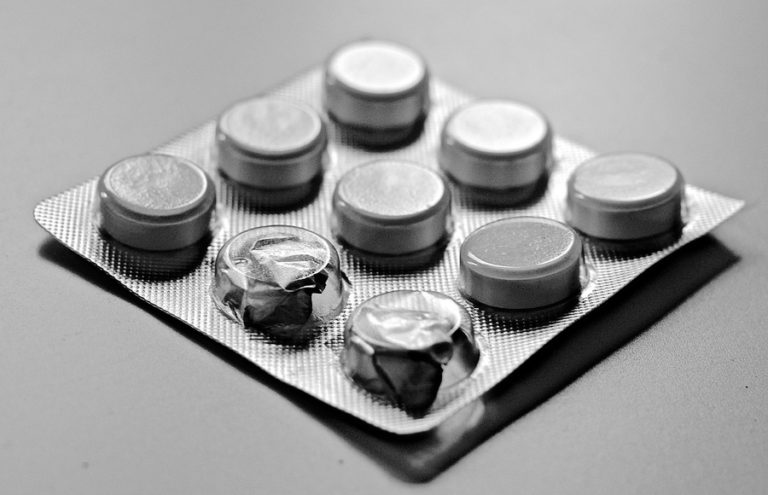A small clinical trial, conducted by medical professionals at Wuhan University involving 62 Covid-19 patients, found that the symptoms of the novel coronavirus could be ameliorated and controlled with the help of the common malaria drug known as hydroxychloroquine. The patients, admitted to the Renmin Hospital at the epicenter of the most recent global epidemic, reportedly underwent a shorter than average recovery period after the administration of the hydroxychloroquine HCQ drug.
This clinical trial in Wuhan comprised a treatment arm and a control group consisting of 31 patients each. For the treatment arm, the hydroxychloroquine HCQ drug shortened the time to clinical recovery by a significant margin, giving hope to physicians looking for an effective treatment for the novel coronavirus. On the 31st of March, the results of this clinical trial were posted by the researchers on the preprint server known as medRxiv. Unlike articles and research papers published in medical journals, preprints have yet to undergo a thorough peer-review process.
Findings of the Clinical Trial
The research team from Wuhan University’s Renmin Hospital discovered that more than 80 percent of the patients in the treatment arm had lower levels of pneumonia compared to the control group, of which only 55 percent of the patients showed a similar result. This means that 25 out of the 31 patients in the treatment group showed improvements while only 17 of the 31 patients in the control group did so.
Of all the 62 patients included in this clinical trial, only four progressed to severe illness. All four of these patients, whose condition worsened drastically, were in the control group, meaning that they had not received the hydroxychloroquine treatment. Only two of the patients in the treatment arm of the trial displayed any side effects to the drug, and these were limited to minor headaches and rashes. No severe side effects from the hydroxychloroquine treatment were noticed by the Wuhan physicians.
Approval Status of Hydroxychloroquine Treatment
Based on the recommendations made by the Task Force for Covid-19, the Indian Council of Medical Research, also known as ICMR, approved the use of hydroxychloroquine on the 23rd of March to treat patients affected by the novel coronavirus. According to the approval granted by the ICMR, hydroxychloroquine is only meant to be used as a prophylaxis by medical workers treating potential or confirmed cases of Covid-19 infection. Asymptomatic household contacts of confirmed Covid-19 sufferers can also be treated with the help of the hydroxychloroquine drug.
Soon, India will be joining the multi-nation ‘solidarity trial’ organized by the World Health Organization, with the goal of testing four different drug combinations for the effective treatment of Covid-19 cases. Hydroxychloroquine is one of the drugs that will be tested during this multi-country clinical trial. The Food and Drug Administration (FDA), on the 29th of March, issued an emergency use authorization for both chloroquine and hydroxychloroquine for the treatment of the novel coronavirus.
Deaths Associated with Hydroxychloroquine HCQ
Donald Trump, the President of the United States, has championed the use of hydroxychloroquine to treat Covid-19 cases. In the meantime, however, three Nigerian citizens are reported to have died of a hydroxychloroquine overdose. They reportedly self-medicated with the drug after reading a tweet by President Trump endorsing the use of hydroxychloroquine for Covid-19 treatment.
After a man from Arizona and his wife self-medicated using a hydroxychloroquine-based home remedy for the coronavirus, both of them had to be hospitalized and the husband was eventually declared dead. In India, a physician reportedly succumbed to an overdose and died after consuming just two doses of the drug, prompting authorities around the world to warn people not to self-medicate without medical advice from qualified health professionals.
Outcome of the Wuhan Clinical Trial
In the treatment group of the Renmin Hospital clinical trial, patients received 400 mg of hydroxychloroquine every single day over the course of their treatment. For five consecutive days, the hydroxychloroquine was administered in conjunction with standard medication and treatment procedures. The patients in the control group, on the other hand, received only the standard Covid-19 treatment and no hydroxychloroquine was administered to them. The assignment of patients to both of the groups was done at random.
The researchers studied radiological changes in the patients belonging to both groups using chest CT scans. Additionally, they recorded how much time each patient took to achieve full clinical recovery. For recovery to be complete, a patient had to return to normal body temperature for more than three days at a time. Cough relief was another parameter being measured.
The amount of time taken by the treatment group to achieve normal body temperature was, according to the researchers, significantly shorter than the time taken by members of the control group. Cough remission in the treatment group was also significantly less than in the control group.
The chest CT scans proved that nearly 81 percent of patients in the treatment group showed improvements in pneumonia symptoms, as opposed to just 55 percent in the control group. Thus, the preprint claimed that the potential of hydroxychloroquine in the treatment of the novel coronavirus was significant and promising.
Final Thoughts
Pharmaceutical companies around the world should therefore assess the situation and do everything in their power to ensure that the hydroxychloroquine drug remains available to all those who need it in these trying times. Moreover, it is essential for health authorities in all countries to make sure that hydroxychloroquine HCQ is not dispensed without a prescription, in order to prevent people from buying and hoarding medication that they do not need, consequently causing a shortage of potentially life-saving drugs.
** Banner image is Symbolic
![]()



